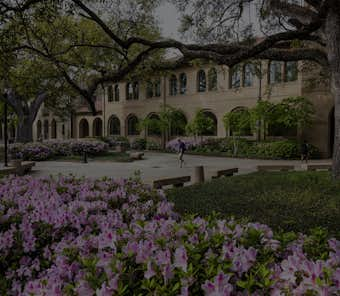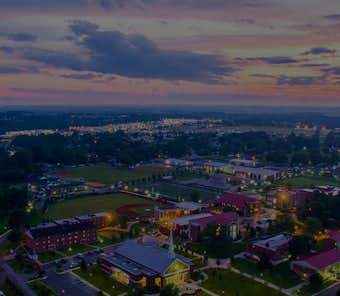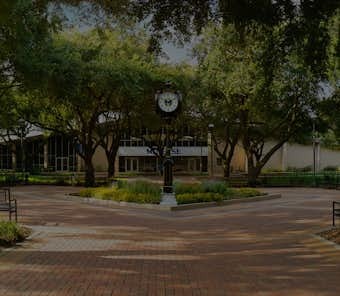
Study mass communication abroad
Find programs that match your eligibility and aspirations then apply with reduced application fees, a free assessment and access to a dedicated advisor.
Find your perfect mass communication programs abroad
Find mass communication programs you love that match your needs & aspirations, where you stand a high chance of acceptance.
-

PhD programs in
mass communicationNo programs listed
Mass Communication degrees abroad
Mass communication is a rapidly changing field that focuses on how and why messages are transmitted to large numbers of people.
As a mass communication student, you’ll get to grips with several different types of media, including print, television, radio, digital media, and social media. You’ll analyze the role that mass communication has played throughout history, and consider how it continues to shape today’s society. You’ll learn about the laws that govern communication outlets and have the chance to put what you’ve learned into practice by planning and creating your own content.
Never before has the world been more connected and that’s partly thanks to the global nature of mass communication. By studying abroad, you’ll see how information is communicated internationally, but also how the delivery and content of messages is influenced by social and cultural contexts. As well as developing professionally, you’ll experience personal growth, make new friends, and explore the world.

Why use Studee?
-
Find your ideal program
Filter 10,000s of programs down to a shortlist perfect for you, where you have a strong chance of getting admitted
-
Apply online via Studee
Complete our application form and enjoy reduced application fees and access to unique Studee scholarships for many universities
-
We assess within 48hrs
We complete an 85-point assessment within 2 business days, help you with improvements then submit to your university
-
University offer in 2-4 weeks
We chase the university for your admission decision and keep you updated. We all celebrate your admission!
All our services are 100% free as we're funded by universities. You pay deposits and tuition fees directly to the university.

Mass Communication program structure
You can study mass communication at a range of undergraduate and postgraduate levels. Two year-associate degrees provide students with a solid grounding in the subject. They’re a great avenue if you’re hoping to secure entry-level employment or progress onto a bachelor’s program.
A BA in mass communication is studied over three or four years, depending on your university and country of study. Students are often advised to complete an additional year-long placement between their second and final year of study to gain hands-on industry experience and improve their employability.
If your BA has left you eager to discover more about the subject, you can enroll in a postgraduate program. An MA can be studied on a full-time or part-time basis over one or two years. Once you’ve got your master’s under your belt, you can study a PhD which takes around five years to complete.
Every mass communication program will be taught slightly differently, but most will involve lectures, seminars, practical workshops, and one-to-one tutorials. You’ll likely be assessed through a combination of exams, essays, written assignments, presentations, and practical projects.
Mass communication is a flexible degree that can be easily tailored to reflect your interests. However, most universities will provide a comprehensive grounding in these core areas:
- Theories of mass communication
- Mass communication and society
- Research methods in mass communication
- Mass communication law
- Mass communication and globalization
- Digital media
- Telecommunications
- Media design
Best countries to study mass communication
Best universities to study mass communication
Mass Communication study abroad programs
Mass communication undergraduate programs
Bachelor's in mass communication
-

Mass Communication - BA (with foundation and placement) Brenau University, USA
- Program type
- Bachelor's
- Duration
- 6 years
- Annual tuition fee
-
31,000 USD
Fees are displayed in the university's local currency
- Start date
- August, January
-
Mass Communication - BSc Campbellsville University, USA
- Program type
- Bachelor's
- Duration
- 4 years
- Annual tuition fee
-
25,600 USD
Fees are displayed in the university's local currency
- Start date
- August, January
-
Broadcasting and Mass Communication - BA State University of New York at Oswego, USA
- Program type
- Bachelor's
- Duration
- 4 years
- Annual tuition fee
-
18,679 USD
Fees are displayed in the university's local currency
- Start date
- August, January
-
Mass Communication - BA Louisiana State University, USA
- Program type
- Bachelor's
- Duration
- 4 years
- Annual tuition fee
-
28,700 USD
Fees are displayed in the university's local currency
- Start date
- September, January
-
Journalism and Mass Communication (Downtown Phoenix Campus) - BA Arizona State University (in partnership with Kaplan International), USA
- Program type
- Bachelor's
- Duration
- 4 years
- Annual tuition fee
-
32,760 USD
Fees are displayed in the university's local currency
- Start date
- January, August
Associate in mass communication
-

Mass Communication - AA College of the Desert, USA
- Program type
- Associate
- Duration
- 2 years
- Annual tuition fee
-
7,368 USD
Fees are displayed in the university's local currency
- Start date
- August, January
-

Mass Communications - AA-T Moraine Valley Community College, USA
- Program type
- Associate
- Duration
- 2 years
- Annual tuition fee
-
8,310 USD
Fees are displayed in the university's local currency
- Start date
- August, January, June
Mass communication graduate programs
Master's in mass communication
-
Broadcasting and Mass Communication/Business Administration - Dual BA/MBA State University of New York at Oswego, USA
- Program type
- Bachelor's/Master's
- Duration
- 5 years
- Annual tuition fee
-
19,537 USD
Fees are displayed in the university's local currency
- Start date
- August, January, June
-
Mass Communication - MA Stephen F. Austin State University, USA
- Program type
- Master's
- Duration
- 2 years
- Annual tuition fee
-
14,562 USD
Fees are displayed in the university's local currency
- Start date
- August, January
-
Mass Communications: Public Relations Concentration - MA/MSc Murray State University, USA
- Program type
- Master's
- Duration
- 2 years
- Annual tuition fee
-
8,640 USD
Fees are displayed in the university's local currency
- Start date
- August, January
Future mass communication careers
As a mass communication graduate, you’ll be armed with a wide range of skills in research, creativity, and storytelling. You’ll have the chance to apply your expertise across a wide range of sectors and career paths, including:
- Public relations specialist
- Journalist
- Broadcaster
- Marketing manager
- Advertising specialist
- Copywriter
- Communications officer
- Media buyer
Gaining practical industry experience will help boost your chances of securing employment after graduation. Most universities have student-run media organizations that are always looking for volunteers, or try organizing some work experience with a local media company.


















